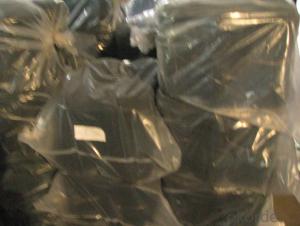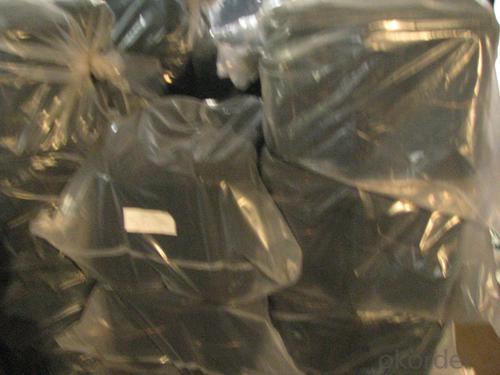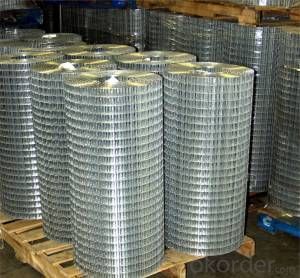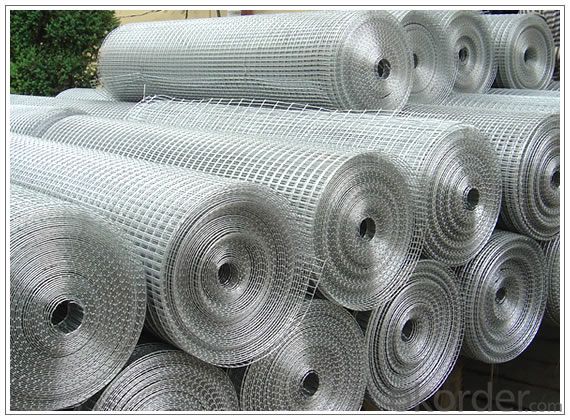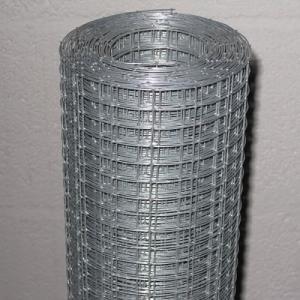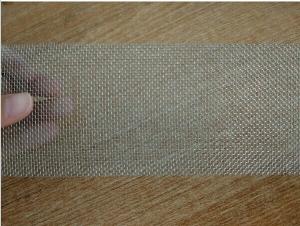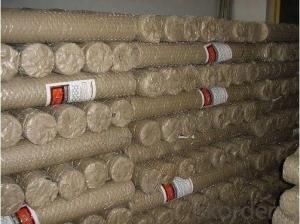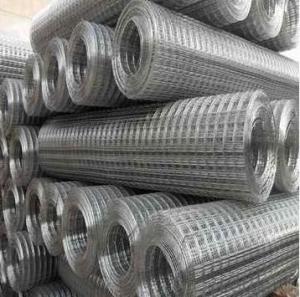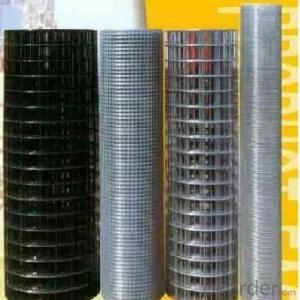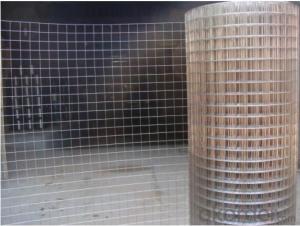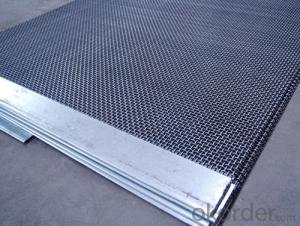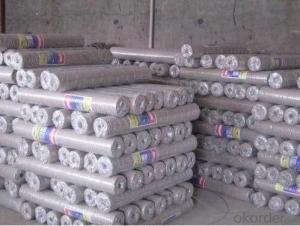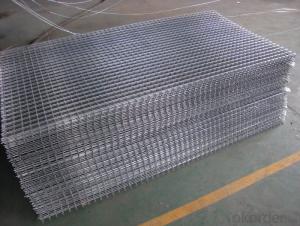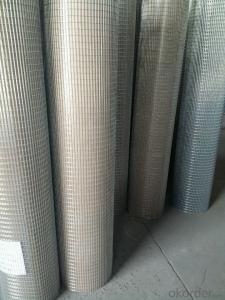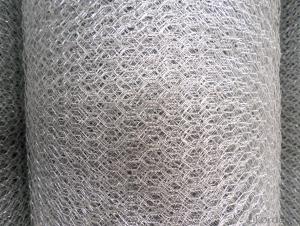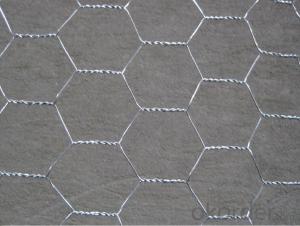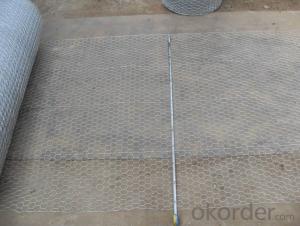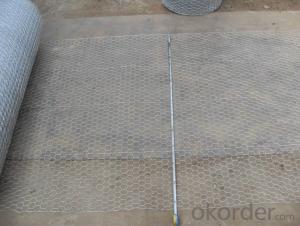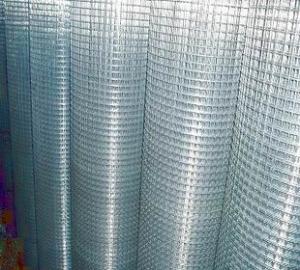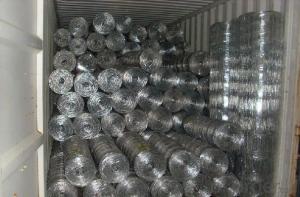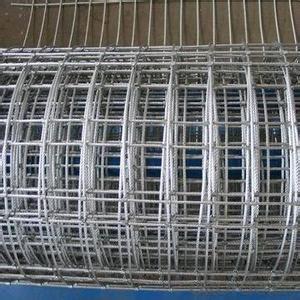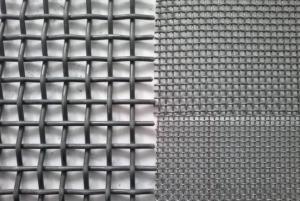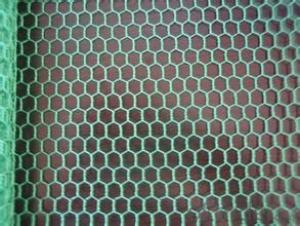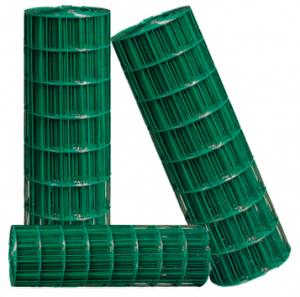Good Quality Galvanized Wire Mesh
- Loading Port:
- China Main Port
- Payment Terms:
- TT OR LC
- Min Order Qty:
- -
- Supply Capability:
- -
OKorder Service Pledge
OKorder Financial Service
You Might Also Like
Material: The low carbon steel , elec-galvanized steel wire, hot-dip galvanized steel wire, pvc coated wire, stainless steel wire etc.
Surface treatment: Elec-galvanized, hot-dip galvanized, pvc coated, powder coating etc.
Feature: The structure of this kind of wire mesh is strong, lasting and rust-resistant.Galvanized welded wire mesh is galvanized after welding.
Application: They are used in industry and agriculture building, transportation and mining for all such purposes as poultry houses, egg baskets, runway enclosures, draining rack, fruit drying screen, fence.
Welded wire mesh divides into stainless steel, hot dipped galvanized and electro galvanized.The adoption plates the zinc craft after welding,it is made from high-quality iron wire by automatic equipment .
The products have smooth mesh surface ,well-proportioned meshes ,strong welded points and bright luster.The mesh does not come loose even if cut in parts or being exerted force on parts .Compared with general iron wire,the products are better in respects of anti-corrosive and anti rust.
Welded Wire Mesh Use:used in the industry ,agriculture ,construction,transport and mining .Such as machine protection cover ,ranch fender ,garden fender ,window protection fender ,passage fender ,fowl cage ,egg basket and foodstuffs basket.
surface treated:Galvanized and PVC coated,stainless steel wire
Weaving and characteristics:
Hot dipped galvanizing after weaving
Weaving with hot dipped galvanized iron wireElectric galvanizing after weaving
Weaving with electric galvanized iron wirePVC coated welded wire mesh
- Q: How to fix the plaster steel wire mesh
- Plastering, commonly known as whitewash walls, refers to the use of river sand, lime or mortar king, cement, mixed with water mixing into cement mortar, cement mortar and then wipe the wall, insulation mortar plaster is to play the role of insulation, the North
- Q: Can steel wire mesh be used for reinforcement of asphalt?
- Yes, steel wire mesh can be used for reinforcement of asphalt. Steel wire mesh is commonly used as a reinforcement material in asphalt pavements to enhance their strength and durability. The mesh is typically placed between the layers of asphalt during construction to provide additional structural support and prevent cracking and deformation. The steel wire mesh helps distribute the load evenly across the pavement, reducing the risk of premature failure due to stress and traffic loads. Additionally, it improves the resistance of the asphalt to temperature changes, moisture, and other environmental factors. Overall, the use of steel wire mesh as reinforcement in asphalt can significantly enhance the performance and lifespan of the pavement.
- Q: How does the temperature resistance affect the performance of steel wire mesh?
- The temperature resistance of steel wire mesh has a significant impact on its performance. Steel wire mesh is commonly used in various applications where it is exposed to different temperature conditions. Firstly, a higher temperature resistance of the steel wire mesh ensures that it can withstand extreme heat without losing its structural integrity. This is particularly important in industrial settings where the wire mesh may be exposed to high temperatures during manufacturing processes or in applications that involve heat transfer. If the wire mesh cannot withstand the temperature, it may deform, lose its shape, or even melt, rendering it useless and compromising the overall performance of the system it is being used in. Secondly, the temperature resistance of steel wire mesh also affects its mechanical properties. Steel wire mesh is often used for its strength and durability, and these properties can be affected by temperature changes. As the temperature increases, the strength of the wire mesh may decrease, leading to reduced load-bearing capacity. This can be critical in applications where the wire mesh is used for structural purposes or in situations where safety is a concern. In extreme cases, the wire mesh may fail completely, resulting in potential accidents or damage to the surrounding infrastructure. Moreover, the temperature resistance of steel wire mesh also influences its corrosion resistance. When exposed to high temperatures, the risk of oxidation and corrosion increases. If the wire mesh is not resistant to such corrosion, it can lead to rusting, weakening the structure and shortening its lifespan. Corrosion can also affect the appearance of the wire mesh, making it less visually appealing or suitable for certain applications. In conclusion, the temperature resistance of steel wire mesh plays a crucial role in determining its performance. A higher temperature resistance ensures that the wire mesh can withstand extreme heat without losing its structural integrity, maintains its mechanical properties, and prevents corrosion. It is essential to consider the temperature requirements of the application when selecting steel wire mesh to ensure optimal performance and longevity.
- Q: Can steel wire mesh be used for creating tree guards or plant supports?
- Yes, steel wire mesh can be used for creating tree guards or plant supports. Steel wire mesh is a versatile material that can provide excellent protection and support for trees and plants. It can be used to create sturdy tree guards, which help prevent damage from animals, pests, or strong winds. The mesh structure allows for proper air circulation while keeping out unwanted visitors. Additionally, steel wire mesh can be used to create plant supports, such as cages or trellises, which provide necessary support for climbing or vining plants. The strength and durability of steel wire mesh make it a reliable choice for ensuring the growth and protection of trees and plants.
- Q: What are the different spacing options available for steel wire mesh?
- Steel wire mesh offers a variety of spacing options to meet specific application requirements. Here are a few commonly used options: 1. Standard spacing: This is the most commonly used option, with evenly spaced wires at a predetermined distance. The spacing can vary based on factors such as mesh size, wire diameter, and intended use. 2. Fine spacing: This option provides a denser mesh with narrower gaps between the wires. It is ideal for applications requiring finer filtration or separation, such as industrial sieving or particle retention. 3. Coarse spacing: With wider gaps between the wires, this option allows larger particles or objects to pass through. It is suitable for applications where a less restrictive barrier is needed, such as fencing or animal enclosures. 4. Custom spacing: For unique project needs, custom spacing options can be fabricated to meet specific requirements. When selecting the appropriate spacing option for steel wire mesh, it is crucial to consider factors like intended function, desired strength, and environmental conditions. Seeking guidance from a reputable supplier or manufacturer can help determine the most suitable spacing option for a given application.
- Q: Can steel wire mesh be used for agricultural netting?
- Certainly, agricultural netting can make use of steel wire mesh. Steel wire mesh, being a robust and long-lasting material, finds wide application in diverse agricultural scenarios. It serves as a reliable barrier to safeguard crops against animal intrusions, acts as a supportive medium for climbing plants, and functions as a trellis for vine plants. Furthermore, steel wire mesh proves invaluable in the construction of livestock and poultry cages or enclosures, providing a solid and trustworthy structure capable of enduring the rigorous demands of agricultural settings.
- Q: Are there any disadvantages of using steel wire mesh?
- Yes, there are some disadvantages of using steel wire mesh. One disadvantage is that steel wire mesh can be relatively expensive compared to other types of mesh materials. The cost of steel and the manufacturing process can result in a higher price point for steel wire mesh. This can make it less affordable for some applications or projects with a limited budget. Another disadvantage is that steel wire mesh can be heavy and difficult to handle, especially in large quantities. This can make installation and transportation more challenging, requiring additional equipment or manpower. The weight of steel wire mesh can also put strain on supporting structures if not properly accounted for. Additionally, steel wire mesh is susceptible to corrosion and rust over time, especially when exposed to moisture or harsh environmental conditions. This can lead to a decrease in the durability and lifespan of the mesh, requiring more frequent replacements or repairs. Corrosion can also affect the appearance of the mesh, resulting in an unsightly or worn-out look. Furthermore, steel wire mesh may not be suitable for applications where a high level of flexibility or malleability is required. Steel wire mesh is known for its strength and rigidity, but it may not be able to conform to certain shapes or contours as easily as other materials. This can limit its use in certain architectural or artistic designs. Lastly, steel wire mesh can conduct electricity, which can be a disadvantage in certain applications. If the mesh is used in an environment where electrical conductivity is a concern, additional measures may need to be taken to ensure safety and prevent electrical hazards. Overall, while steel wire mesh offers numerous advantages such as strength, durability, and security, it is important to consider these disadvantages and evaluate whether they are relevant to the specific application or project at hand.
- Q: Can steel wire mesh be used for decorative wall cladding?
- Certainly! Decorative wall cladding can indeed utilize steel wire mesh. This material holds great versatility, serving various purposes, one of which is enhancing walls aesthetically. Whether applied indoors or outdoors, steel wire mesh imparts a distinct and contemporary appearance to any area. The customization options for patterns, sizes, and finishes are limitless, enabling endless opportunities for design. Moreover, its durability and longevity make it an ideal choice for decorative wall cladding in both residential and commercial environments.
- Q: How does steel wire mesh perform in terms of load distribution?
- The load distribution performance of steel wire mesh is exceptional. Its interconnected network of steel wires effectively transfers and evenly distributes the load throughout its structure. This quality proves particularly advantageous in situations requiring the support of heavy loads, such as construction, industrial settings, or infrastructure projects. The mesh's grid-like pattern guarantees that the load is dispersed across a larger surface area, reducing the concentration of stress points. This aids in the prevention of localized failures or deformations in both the mesh and the surrounding structures. Additionally, the high tensile strength of steel wire mesh allows it to withstand substantial loads while maintaining its structural integrity. Moreover, steel wire mesh can be customized to meet specific load requirements. By adjusting the wire diameter, mesh opening size, or wire spacing, the load distribution capacity can be tailored to suit the intended application. This adaptability makes steel wire mesh an ideal choice for a wide range of load-bearing purposes. In conclusion, steel wire mesh offers outstanding load distribution capabilities, guaranteeing the even distribution of weight and minimizing the risk of structural failures. Its strength, durability, and customizable nature make it a reliable and effective option for various industries.
- Q: What is the lifespan of steel wire mesh?
- Several factors can influence the lifespan of steel wire mesh, such as the mesh's quality, the environment it's exposed to, and how well it's maintained. Steel wire mesh is generally known for being durable and long-lasting. With adequate care and maintenance, it can endure for many years, even decades. Steel wire meshes of high quality that are properly galvanized or coated to resist corrosion can withstand challenging environmental conditions, including moisture, chemicals, and temperature fluctuations. They are commonly used in construction, fencing, filtration, and reinforcement applications. However, if steel wire mesh isn't properly maintained or exposed to aggressive environments without proper protection, it may deteriorate more rapidly. Rust, corrosion, and physical damage are factors that can significantly decrease its lifespan. To prolong the lifespan of steel wire mesh, regular cleaning, inspection, and maintenance are crucial. This may involve removing debris, preventing moisture buildup, and promptly addressing any signs of rust or corrosion. Additionally, using protective coatings or treatments can enhance the mesh's resistance to environmental factors. In summary, the lifespan of steel wire mesh can vary from several years to decades, depending on its quality, maintenance, and exposure conditions. By choosing high-quality mesh, implementing proper maintenance practices, and safeguarding it from harsh environments, one can maximize its lifespan and ensure its long-term functionality.
Send your message to us
Good Quality Galvanized Wire Mesh
- Loading Port:
- China Main Port
- Payment Terms:
- TT OR LC
- Min Order Qty:
- -
- Supply Capability:
- -
OKorder Service Pledge
OKorder Financial Service
Similar products
Hot products
Hot Searches
Related keywords
